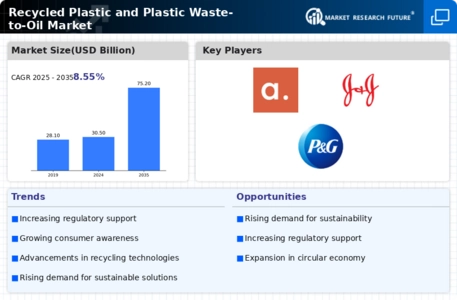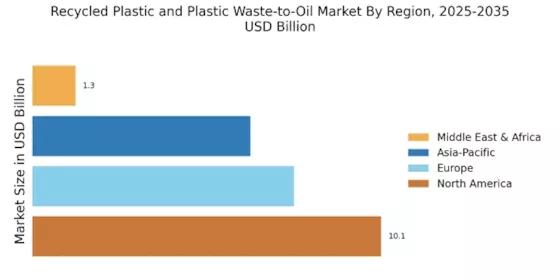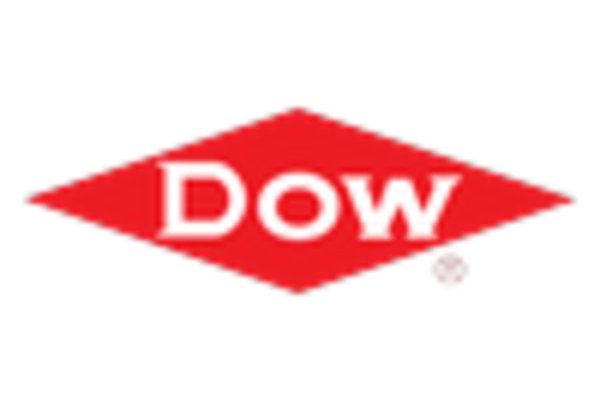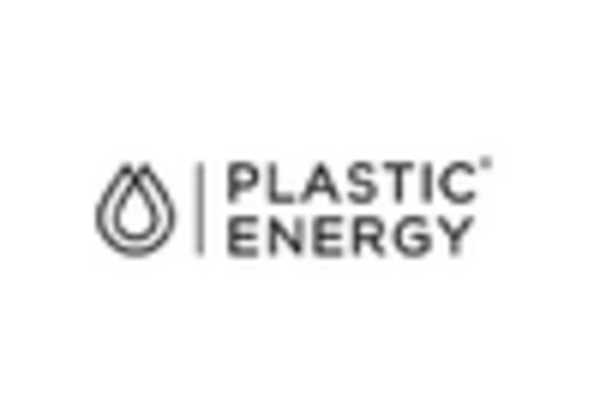Collaboration Across Industries
The Recycled Plastic and Plastic Waste-to-Oil Market is witnessing a trend of collaboration across various sectors, which is crucial for driving innovation and efficiency. Partnerships between manufacturers, waste management companies, and technology providers are emerging to create integrated solutions for plastic waste. These collaborations facilitate knowledge sharing and resource pooling, which can lead to the development of more effective recycling technologies. Additionally, joint ventures are being formed to explore new markets for recycled products, thereby expanding the reach of the recycling industry. This collaborative approach is expected to enhance the overall effectiveness of waste-to-oil initiatives, contributing to a more sustainable future.
Increasing Regulatory Frameworks
The Recycled Plastic and Plastic Waste-to-Oil Market is bolstered by an increasing number of regulatory frameworks aimed at promoting recycling and reducing plastic waste. Governments are implementing stricter regulations on plastic production and disposal, which encourages industries to adopt recycling practices. For instance, policies mandating the use of recycled materials in manufacturing processes are becoming more prevalent. This regulatory push not only fosters a favorable environment for the growth of the recycling sector but also aligns with global sustainability goals. The market is likely to benefit from these initiatives, as they create a more structured approach to waste management and resource recovery.
Rising Consumer Awareness and Demand
The Recycled Plastic and Plastic Waste-to-Oil Market is significantly influenced by rising consumer awareness regarding environmental issues. As consumers become more informed about the detrimental effects of plastic pollution, there is a growing demand for products made from recycled materials. This shift in consumer behavior is prompting manufacturers to incorporate recycled plastics into their supply chains. Market data indicates that products labeled as sustainable or eco-friendly are witnessing increased sales, which in turn drives the demand for recycled plastic. This trend is expected to continue, further propelling the growth of the recycling industry and the adoption of waste-to-oil technologies.
Investment in Recycling Infrastructure
The Recycled Plastic and Plastic Waste-to-Oil Market is benefiting from increased investment in recycling infrastructure. Governments and private entities are recognizing the need for robust recycling systems to manage plastic waste effectively. Investments are being directed towards building advanced recycling facilities and enhancing collection systems, which are essential for improving recycling rates. For example, funding initiatives aimed at upgrading existing facilities to handle diverse types of plastic waste are becoming more common. This influx of capital is likely to enhance the operational capabilities of recycling businesses, thereby fostering growth in the waste-to-oil segment of the market.
Technological Innovations in Waste Processing
The Recycled Plastic and Plastic Waste-to-Oil Market is experiencing a surge in technological innovations that enhance the efficiency of waste processing. Advanced pyrolysis technologies, for instance, are being developed to convert plastic waste into oil with higher yields and lower energy consumption. These innovations not only improve the economic viability of recycling operations but also reduce the environmental footprint associated with traditional waste disposal methods. As a result, the market is projected to grow significantly, with estimates suggesting a compound annual growth rate of over 10% in the coming years. This technological evolution is crucial for meeting the increasing demand for sustainable waste management solutions.


















